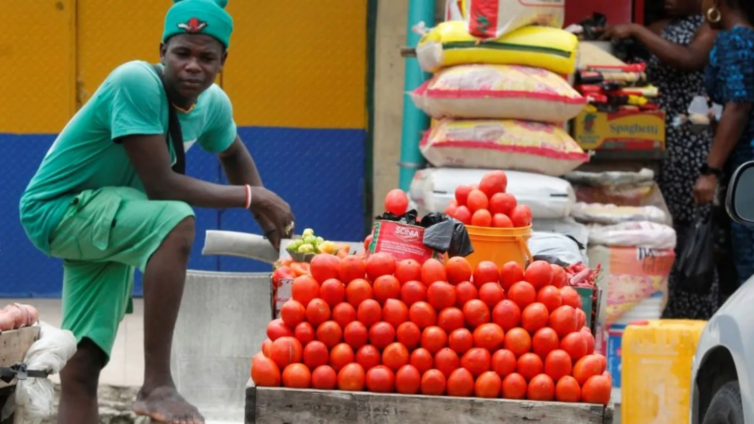Nigeria has raised salaries for civil servants by between 25% and 35% amid to help them cope with the rising cost of living.
The lowest-paid government employee will now earn $324 (£258) a year, Reuters news agency reports.
Police and military officers are among state workers who are set to benefit from the pay rises, which will be backdated to January.
The announcement came on the eve of Wednesday's Workers' Day holiday.
However, the rate of inflation is currently more than 30% - the highest figure in nearly three decades.
The cost of food has risen even more - by 35%, according to the latest data from the National Bureau of Statistics, so the pay rises mean that salaries for civil servants stay roughly the same in real terms - what it can buy in the shops and markets.
Pensions for those workers who benefit were also increased by between 20% and 28%, the National Salaries, Incomes and Wages Commission (NSIWC) said.
The hikes come after the government recently raised the salaries of academic staff members and healthcare workers.

However, the monthly minimum wage, set by the government and which all employers are supposed to observe, has not changed since 2019, when it was put at 30,000 naira - this is now worth just $19 (£15) after a sharp fall in the value of the naira over recent months.
The government also recently increased electricity tariffs for consumers who use the most power as it seeks to wean the economy off subsidies that have weighed heavily on public finances.
The trade union umbrella group, the Nigeria Labour Congress (NLC), welcomed the latest pay increase but urged the government to ensure that it was reflective of the harsh economic situation in the country.
"These categories of workers are already in the privileged sector but we expect it to be extended also to other categories of civil servants who are in lower cadre and are vulnerable," NLC spokesman Comrade Benson Upah told local media.
Negotiations are ongoing between the government and the main labour unions about an increase in the minimum wage.
Food prices as well as the prices of goods and services have doubled in many parts of the country since the removal of a fuel subsidy last year.
Petrol shortages have worsened in Nigeria's major cities, with long queues observed since last week, as Africa's biggest oil producer struggled with a fuel scarcity.
Authorities blamed the shortage on supply disruptions due to logistical challenges.
Most of Nigeria's oil is exported, while the fuel which is used locally is mostly imported due to a lack of refining capacity.
Latest Stories
-
ECOWAS deploys observers for Dec. 7 election
42 seconds -
73 officers commissioned into Ghana Armed Forces
2 mins -
Impending shutdown of three power plants won’t happen – ECG MD
4 mins -
Ghana shouldn’t have experienced any ‘dumsor’ after 2017 – IES Boss
57 mins -
Lamens flouted some food safety laws in re-bagging rice – Former FDA Boss Alhaji Hudu Mogtari
1 hour -
Afcon exit: Our issue is administrative failure and mismanagement, not lack of talent – Saddick Adams
2 hours -
WAPCo to commence major pipeline maintenance and inspection from November 25
2 hours -
CEO of Oro Oil Ghana Limited Maxwell Commey listed among the 100 Most Influential People Awards, 2024
2 hours -
Power crisis: Amandi is off due to maintenance, not debt – ECG Boss
2 hours -
Votes cast for late Akua Donkor to be declared invalid – Electoral Commission
3 hours -
You can’t keep “incompetent” Otto Addo for the long term – Countryman Songo
3 hours -
Joy FM holds 2024 Prayer Summit for Peace
3 hours -
Lady sues Police and AG over assault in custody
4 hours -
Ghana’s railway sector has been revived under my leadership – Akufo-Addo
5 hours -
Next government must enforce C190 – Women Economic Dialogue Forum
5 hours

